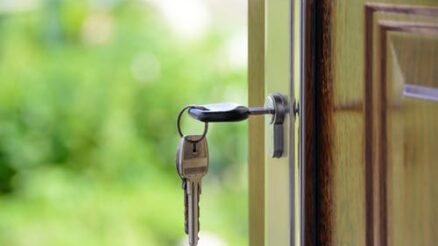A flood is one of the most harmful and devastating occasions a homeowner may experience. Household flooding can be caused by numerous aspects, consisting of severe rain, drain backup, or damaged pipelines. No matter the factor, you need to know what to do if your home floods. Right away, dealing with the concern will decrease subsequent damage and make clean-up and remediation easier.
The Best Things to Do Following a Flood
Recuperating after the flood might be difficult. However, it would help if you acted right away to prevent more damage. Below are some of the very best things you can do right after a flood.
Security
In the consequences of any devastating house catastrophe, the priority should be to stay safe. If the flooding is extreme enough, you may be forced to leave your house. Determine your safety upon your return home to begin handling the repercussions.
This might include shutting down the electrical power, as water and electrical power are incompatible. When you re-enter your home, make sure to use protective clothing, such as rubber boots and gloves. It is necessary to protect oneself versus any unsafe substances or materials that may have been cleaned during the storm.
Eating food that has been contaminated by flooding is never an option. If the water level reaches your fridge or any pantry cabinets, it is prudent to dispose of the food. Before recycling any dishware or glasses that might have been caught in the house flood, carefully clean them.
Stop and Remove the Water
When your home floods, you need to isolate the water source as much as possible immediately. If your sump pump is broken or malfunctioning, replacing it can allow your basement, garage, or primary flooring to hold up against future rains and prevent more damage.
If a damaged pipeline caused your home to flood, fix the pipes instantly to reduce water damage. The sooner the water is stopped from going into, the quicker you can start tidying up and repairing any damage.
Clean-Up
It is time to start post-flood healing efforts. You can either get in touch with an expert water damage repair organization or begin the restoration process independently. This involves determining what is salvageable and discarding anything that is too damaged or risky to use. If the flooding in your home was comprehensive, you might be required to generate a dumpster to assist in the disposal of bigger broken things considering that your trash can might rapidly fill up.
Think about the possibility that you will need to remove the floor covering, drywall, and insulation to prevent mold from spreading out throughout your residential or commercial property. In addition, furnishings might require dried, cleaned up, or discarded depending on the extent of water damage.
Unless you are highly skilled, employing a professional mold and water removal firm is most likely more suitable. Mold can begin to grow within the day of a flood, and as soon as it has already started to grow, it can be challenging to eliminate. The sooner you remove goods from water and start drying them, the less likely they will be lost to mold, although it is much better to be cautious and see a professional.
Repairs
Usually, the after-effects of a house flood take the most extended length of time. You may have broken windows because of the rushing water, harmed floors, and broken valuables that need repair work. After your insurance provider has evaluated the home for qualified damages, you might use a water damage repair company if necessary. Ensure that any damaged windows are boarded up and that any hazardous particles are removed from flooded areas.
If you have electronic devices submerged in water or harmed in a flood, get them examined by a specialist before reconnecting them to a source of power. This consists of tv, audio systems, video game consoles, computer systems, and other appliances.
If you’re unclear how to proceed with home repair work after your home floods, contacting a water damage repair company focusing on flood or natural disaster remediation may be helpful. They can ascertain whether walls require replacement or whether floodwaters have damaged your floors. An experienced building business can help you in firmly recovering your house.
Conclusion
Failure to clean up after a flood can supply perfect circumstances for mold growth, which can lead to disease. For some people, mold can be unpleasant and even harmful. Mold can exacerbate allergic signs and contribute to the advancement of asthma, which is particularly dangerous for children and the elderly.
Composed above are actions you can require to reduce mold development following a house flood, consisting of using specialized devices and chemicals, along with the support of a water damage remediation service. Visit their website for more information on water damage restoration companies.

